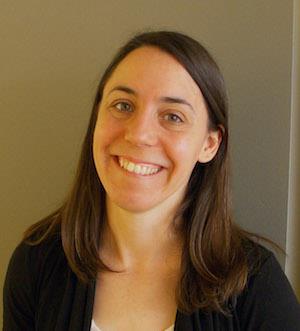Career Development
The Graduate Students for Diversity in Science are presenting two talks for the Spring Distinguished Lecture Series, featuring Dr. Caroline Ajo-Franklin from Lawrence Berkeley National Laboratory.
 The Graduate Students for Diversity in Science are presenting two talks for the Spring Distinguished Lecture Series, âfeaturing Dr. Caroline Ajo-Franklin from Lawrence Berkeley National Laboratory.
The Graduate Students for Diversity in Science are presenting two talks for the Spring Distinguished Lecture Series, âfeaturing Dr. Caroline Ajo-Franklin from Lawrence Berkeley National Laboratory.
Making and Understanding Electronically-Controlled Organisms
Thursday, April 28, 4 p.m.
ESB 1001
Light refreshments will be served Reception to follow
Since both organisms and devices use electrons as information and energy carriers, interfacing living cells with electrodes offers the opportunity to control key biological processes electronically. In the first part of âthe talk, Ajo-Franklin will describe how her lab has transformed the industrial microbe Escherichia coli into an electroactive bacterium, whose behavior we can control electronically. In the second part of âthe talk, she will discuss new structural understanding of how proteins can electronically interface microbes with materials. Together this work paves the way for rationally constructing electronically-controlled organisms.
Diversity in Science: Why It Matters and How You Can Help
Friday, April 29, 10 a.m.
MRL 2053
Light refreshments will be served
From an international perspective, scientists benefit our globe by advancing our national competitiveness and solving problems in health, energy, and the environment. On the personal level, science offers a rewarding and desirable career. Thus, the low levels of diversity in science endangers our future competitiveness, as well as limits opportunities for underrepresented minorities and women to make socioeconomic progress. In âher talk, Ajo-Franklin will draw upon both published data and âher experiences to discuss why diversity matters, common barriers that women and underrepresented minorities face, and how we can all contribute to a future with greater participation in scientific research.